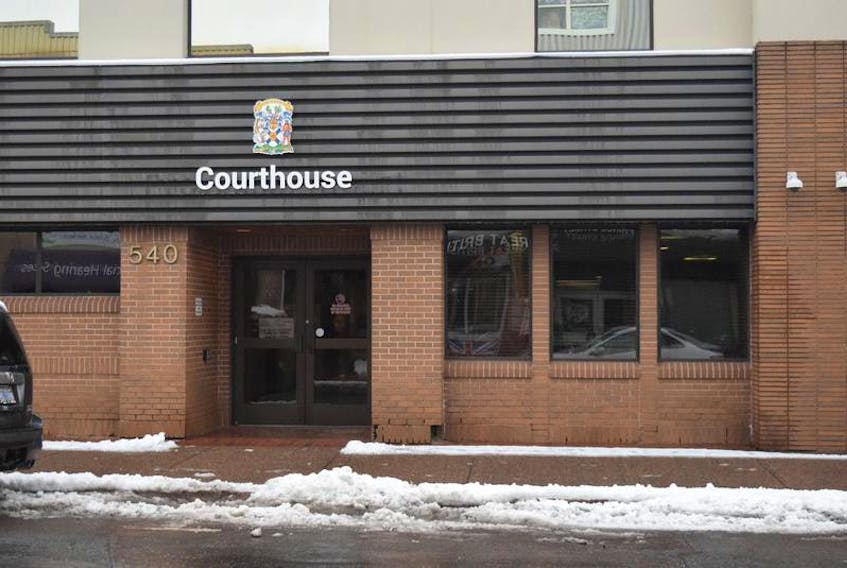TRURO, N.S. — A judge has sentenced a former correctional officer who choked his common-law spouse unconscious three times in front of their children to two years less a day in a provincial jail.
In presenting his decision for James William Herritt Thursday, Judge Al Bégin indicated while the “violent assault” warranted a lengthier federal sentence, he accepted the Crown’s position that a provincial term would allow the accused to be further monitored during a lengthy period of probation following his release.
Probation is not an option in a federal sentence.
“This was a violent assault on (the victim) by Mr. Herritt,” Bégin said. “So much so that he was initially charged with trying to kill her.”
Herritt pled guilty to assault causing bodily harm in a plea bargain agreement that saved the victim from having to testify.
“(The victim) was choked to such a degree that she lost consciousness three separate times over a two to three-hour time period,” Bégin said. “This occurred in front of her children.”
Herritt showed no emotion and essentially stared blankly ahead with his head bowed throughout sentencing.
He is to serve 444 days in jail after being given credit for 345 days spent in remand. That time includes a consecutive 60-day sentence for breaching a court recognizance last October by failing to admit himself into hospital. Herritt instead rented a vehicle and disappeared for five days.
“And he effectively went on the lam with what was reported to be a suicide mission,” Bégin said.
Herritt’s disappearance prompted a province-wide manhunt during which authorities feared he would cause further harm to his victim or her family.
Despite an argument by defence counsel Patrick MacEwen that Herritt’s actions were prompted by long-standing PTSD issues from his time as a correctional officer, the judge said that position was not borne out by information in his presentence report. The judge also expressed concern that Herritt refused to sign a release form for authorities to see his full medical records.
“However, while acknowledging Mr. Herritt’s long struggle with PTSD, the Crown points out that the assault was not random but was triggered by (the victim’s) advising Mr. Herritt that their relationship was over,” Bégin said. “The other mental health issues claimed by Mr. Herritt cannot be accepted if they are solely presented by Mr. Herritt.”
The judge also stated he does not accept Herritt’s assertions that he has no recollection of the assault.
Despite having no previous history of violence, Herritt was described in his assessment as being at a high level of risk to reoffend.
“You committed a violent assault on your spouse, someone you should have protected, in reaction to her advising you that the relationship was over and that she was leaving,” Bégin said. “This violent behaviour has to be denounced and deterred.”
Court heard during the previous week’s sentencing hearing that Herritt repeatedly assaulted the woman while threatening to kill her and himself.
When he is released from jail, Herritt must adhere to strict reporting conditions under his probation terms, including providing information about any intimate relationships to his probation officer.
He must also provide a DNA sample and is banned from possessing firearms or weapons for 10 years.
Judge supports media’s role in covering courts
‘The media has a vital part in the justice system as a whole and the criminal justice system in particular’ - judge
TRURO, N.S.
Prior to delivering his sentencing decision Thursday in the case of James William Herritt, Judge Al Bégin made a point of defending information contained in a previous news story following last week’s sentencing hearing.
“It has come to my attention there has been a backlash against the media for the story that was published online and in print that referred to the sentencing hearing on Feb. 7, 2019,” he said.
“I’ve taken the opportunity to review the story to see if there was anything inappropriate that was reported. There was not.
“While the facts of this case are troubling, and no doubt talk about sensitive subjects for the victim, I do not see that the media breached any norms as it relates to the reporting of what was stated in this court on Feb. 7, 2019.
“The media has a vital part in the justice system as a whole and the criminal justice system in particular. We live in a society that places a high value on the openness of the justice system. Accordingly, the general rule in Canada is that court proceedings are open to the public and may be reported in full.”
While some of the facts reported in the paper and online were of a sensitive nature for the victim, the judge said, the victim has a different last name than Herritt and no other identifying information about her was reported, even though everything was released in a completely open and public session.
“No one who did not know her name and her being the spouse of Mr. Herritt prior to the reporting, would today be in any better position to know it. Those who knew, know. Those who didn’t, don’t,” Bégin said.
“Nothing in the article reveals much about her, her occupation was not mentioned. The facts of the assault are also important should there ever be a potential future Mrs. Herritt out there. The facts and the truth are important.”
Outside court following the hearing, Crown attorney Thomas Kayter said he echoed the judge’s sentiments.
“Those comments speak for themselves,” he said. “The media has an important role in our court system and we value the presence of the media. Sometimes it creates a difficult situation for the victims of these terrible events but the right of the public to know what is taking place and the accurate reporting of that is very valuable for a free and democratic society.”









